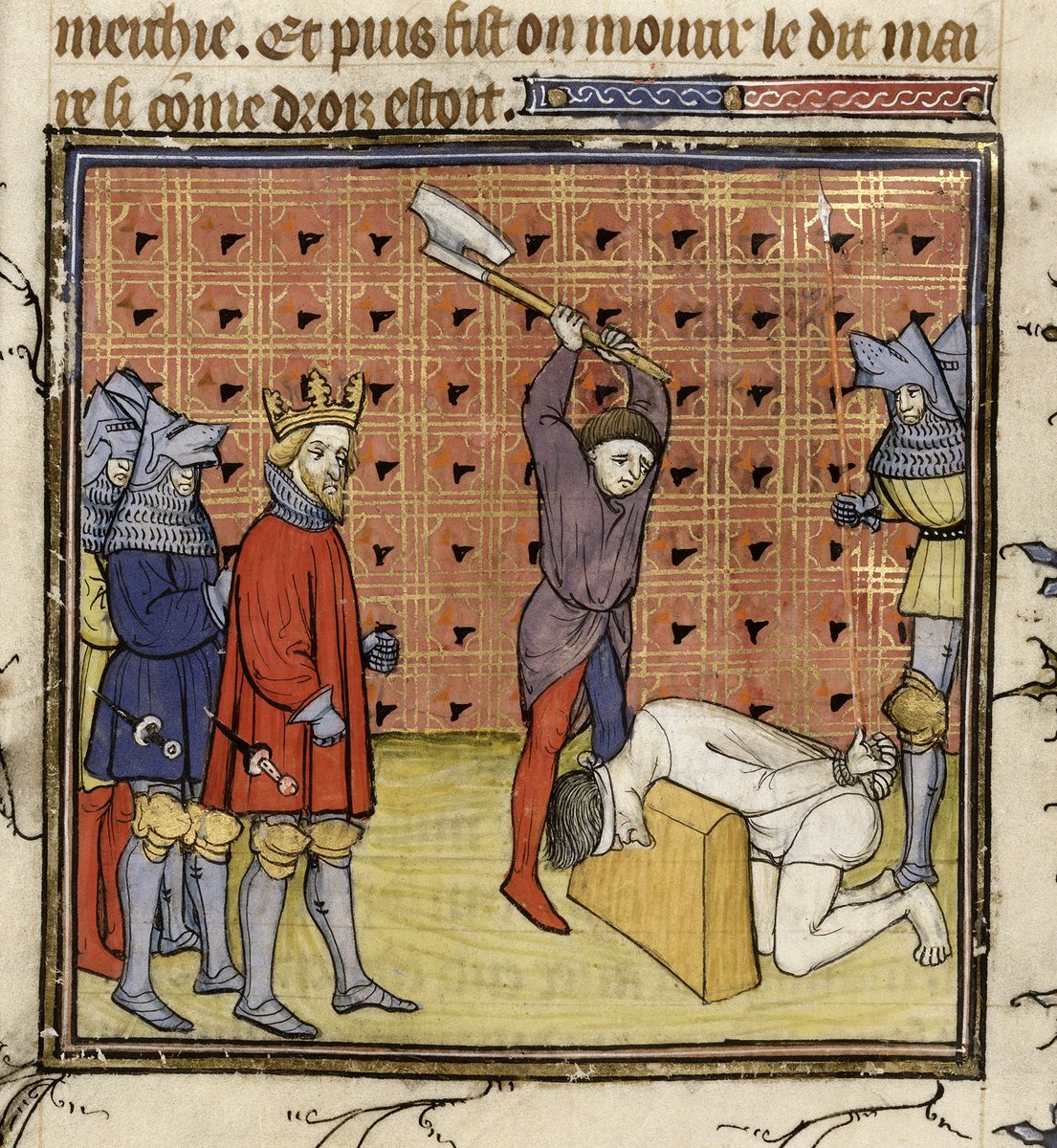
Hi all, @mediaevalrevolt here, putting up my last #Tweethistorian thread today, this one on how the #Jacquerie ended and how people remembered (and forgot) it afterward. - jfb 

When the cities abandoned the Jacques, the nobles' vengeance took free rein. They burned whole villages and slaughtered the innocent along with the guilty. Widows search for the bodies of their husbands to give them proper burial - jfb 

Villagers fought back, though, and what started as a social uprising in May turned into a social war in June and July. - jfb
But on 31 July, the non-nobles' cause collapsed for good when Étienne Marcel, leader of the Parisian rebellion, was assassinated in a bloody counter-coup and Prince Charles returned to Paris in triumph.
(Marcel got a statue & a métro stop in Paris, tho) - jfb
(Marcel got a statue & a métro stop in Paris, tho) - jfb

Charles punished the Parisian rebellion, publicly torturing and executing 2 rebel leaders every other day for a week. But then he drew a line under these events, issuing a full pardon to everyone involved in the Parisian rebellion, the #Jacquerie, and the Counter-Jaquerie. - jfb
Pardoning the rebellion(s) might look like a sign of weakness, but it actually helped restore royal prestige b/c part of 'acting like a king' in the Middle Ages was to dispense mercy as well as justice. (Kind of like God) - jfb
By pardoning the nobles' violence, alongside the rebels', Charles also effectively removed himself from the conflict. The rebellion(s) had been against him, but now he could present himself as being majestically above the fray. (Also kind of like God) - jfb 

Individual people also sought pardons for their particular roles in these events. There are nearly 200 of these for the #Jacquerie, and dozens for the Parisian rebellion and the Counter-Jacquerie - jfb 

These pardons, inc. the example below, tell the story of what the recipient did to need royal forgiveness. (Kind of like confession & absolution). Their rich details range from what people wore, to where they ate, to what they said - jfb 

The one above, granted in 1365, tells the story of a mason who helped execute a traitor on the orders of a village captain. The traitor had been sent to the village for judgement by the #Jacquerie's great captain, Guillaume Calle. - jfb
The traitor was executed in the town square with hundreds of people watching. When the body fell to the ground, the mason was ordered to hit it with his rule. Perhaps an early 'masonic' ritual? - jfb
Along with a handful of chronicles, these pardons are our main source for the rebellion(s) and their suppression. They were fun to work with but also frustrating: these 100s of stories don't always agree, & all of them were written after the revolt(s) ended. - jfb
They reflect less about what people thought they were doing at the time and more what they concluded when they knew how it all turned out. - jfb
There were also dozens of lawsuits for property damage from the #Jacquerie, and there we can see that despite Prince Charles' effort to end the conflict, people stayed angry and fearful for decades. - jfb
But eventually people forgot about the #Jacquerie. It only crept back into historical consciousness in the 19th century, when historians (and other people) started to look back to the Middle Ages for forerunners to their own Age of Revolution. - jfb
Our own moment of plague, populisms, and political disintegration likewise has resonances with the story of the #Jacquerie. I hope we find solutions that are more just, and less bloody, than those arrived at six and half centuries ago. Be well. - jfb 

• • •
Missing some Tweet in this thread? You can try to
force a refresh








